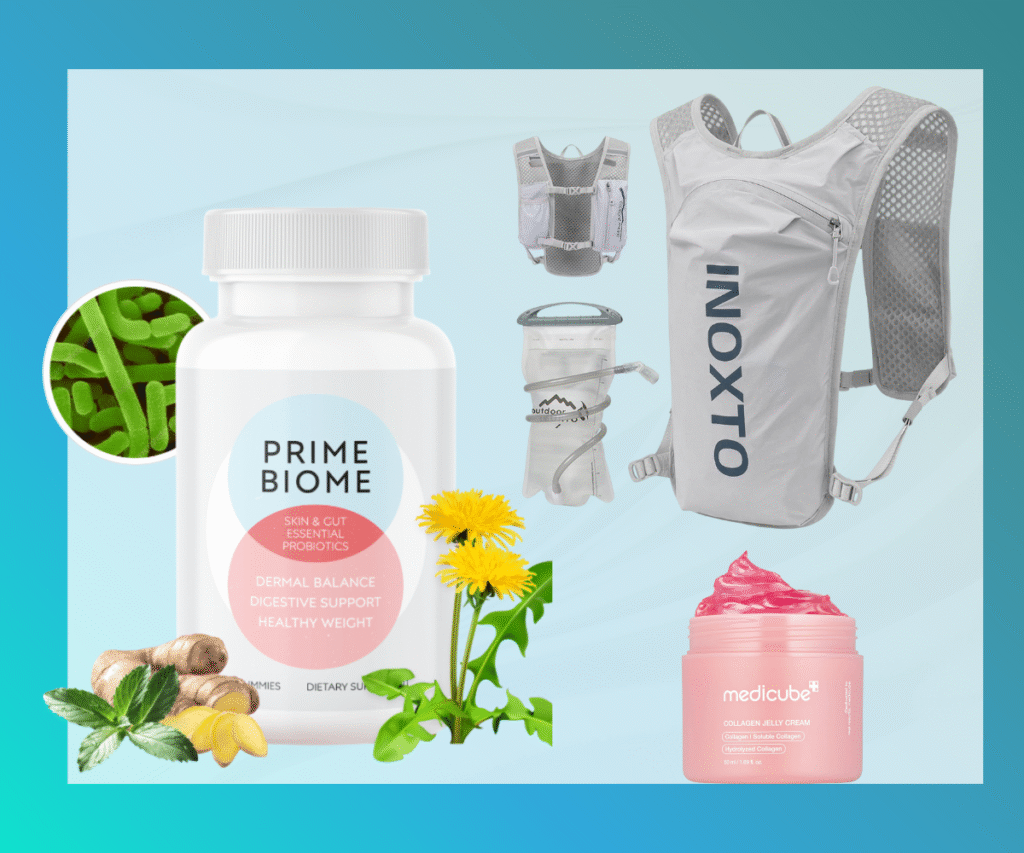Chronic Inflammation Hacks: Simple Lifestyle Changes That Reduce Aging & Stress
You’ve probably come across the term “inflammation” in discussions about chronic diseases, but it goes beyond being a mere buzzword. It’s the underlying cause of numerous modern health issues, ranging from fatigue and joint pain to anxiety and even premature aging.
Chronic inflammation, as explained by Dr. Frank Lipman, an integrative medicine pioneer and author of The New Rules of Aging Well, is akin to a slow-burning fire within the body. It silently damages cells and organs over time, leading to an acceleration of various ailments, including wrinkles and heart disease.
The good news is that you can control a significant portion of it through simple, sustainable lifestyle changes—all without the need for a prescription.
What Is Chronic Inflammation
Unlike acute inflammation, such as swelling from a cut, chronic inflammation occurs when your immune system remains activated excessively. This persistent, low-grade inflammation contributes to:
- Accelerated biological aging (also known as inflammaging)
- Anxiety, depression, and brain fog
- Insulin resistance and belly fat
- Autoimmune conditions and hormonal imbalance
A 2023 study published in Nature Reviews Immunology revealed that chronic inflammation plays a significant role in causing seven out of the ten leading causes of death, including heart disease, cancer, and Alzheimer’s.
It’s Not Just Diet It’s Your Whole Lifestyle
Dr. Uma Naidoo, a Harvard-trained nutritional psychiatrist and author of “This Is Your Brain on Food,” emphasizes that while people often focus on anti-inflammatory foods, stress, poor sleep, and toxic relationships can also be inflammatory.
She advocates for a holistic approach that encompasses not only your dietary choices but also your physical movement, rest, and social interactions.
Lifestyle Hacks to Lower Inflammation (Backed by Science)
1. Prioritize Anti-Inflammatory Foods
Add more:
- Omega-3 fats (from wild salmon, flax, chia)
- Polyphenols (from blueberries, green tea, turmeric)
- Leafy greens (like kale, spinach, arugula)
Avoid:
- Ultra-processed foods
- Refined sugar and seed oils
- Excess alcohol
Harvard’s Anti-Inflammatory Diet Guide
2. Optimize Your Sleep (Aim for 7–9 Hours)
Poor sleep raises inflammatory cytokines like IL-6 and TNF-alpha.
Try:
- Magnesium glycinate before bed
- Blue light blockers at night
- A consistent sleep-wake routine
3. Practice Breathwork or Meditation
Daily mindfulness or deep breathing reduces cortisol, a stress hormone that fuels inflammation.
Try the 4-7-8 breathing technique or the Insight Timer app.
One study from Psychosomatic Medicine found that just 20 minutes of daily meditation lowered inflammation markers in 8 weeks.
4. Move Consistently—but Don’t Overtrain
Moderate exercise like walking, Pilates, or strength training reduces C-reactive protein (CRP) levels.
But beware: Over-exercising without recovery can increase inflammation.
5. Hydrate & Support Detox Pathways
- Drink at least 2–3 liters of filtered water daily
- Eat cruciferous veggies (broccoli, Brussels sprouts) to support liver detox
- Consider a daily electrolyte mix (like LMNT or Nuun) to fight cellular stress
6. Try Natural Anti-Inflammatories
- Turmeric (curcumin)
- Boswellia
- Omega-3 supplements (EPA/DHA)
- Ginger tea
Always consult your doctor before starting any supplement routine.
7. Foster Positive Social Connections
Loneliness is pro-inflammatory, while meaningful relationships reduce stress hormones and promote longevity. Prioritize regular connection, even digitally.
The Harvard Study of Adult Development emphasizes that social connection is the most significant predictor of long-term health and happiness.
Your Daily Choices Shape Long-Term Health
Chronic inflammation, while not directly affecting your physical appearance, can gradually diminish your overall well-being. Unlike genetic predisposition, your daily habits are within your control.
By recognizing inflammation as a lifestyle factor rather than solely a medical condition, you gain the power to slow down the aging process, enhance your well-being, and mitigate the risk of developing diseases.
Small Daily Changes, Big Long-Term Results
In the coming years, health will shift from reacting to symptoms to proactively managing them. The most effective approach to aging well and managing stress? Maintaining a healthy inflammatory response.
Begin with simple changes. Instead of a processed snack, opt for berries. Take a 10-minute walk. Practice deep breathing before bed. You don’t need a complete overhaul; consistent, low-effort wins that accumulate over time are sufficient.
Check out the healthlynic ✔️approved range of products for Weight Loss, Improve metabolism and much more!







